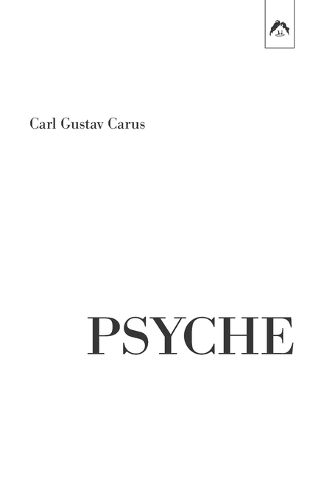Readings Newsletter
Become a Readings Member to make your shopping experience even easier.
Sign in or sign up for free!
You’re not far away from qualifying for FREE standard shipping within Australia
You’ve qualified for FREE standard shipping within Australia
The cart is loading…






Of all precursors, Carl Gustav Carus (1789-1869) claims the closer attention of psychology because his presentation of the unconscious shows him to be mainly a psychologist … In distinction to the thought surrounding him and out of which he emerged, Carus describes psychological processes in detail and yet holds to a holistic view, placing the unconscious and the psyche within a meaningful universe whose main focus for him is life. In the human, life manifests as psyche, the first level of which is the unconscious. He sees man primarily as a psychological being, through whose unconscious he is connected with all life both as nature and as that spiritual principle which inheres in and transcends nature. His position thus stands counter to the Western tradition’s long identification of psyche with the conscious mind only and the human being with the spirit. By insisting upon the unconscious level to the psyche and the psyche as the fundament of man, he introduced into the nineteenth-century’s warring camps called science and religion a holistic perspective. Without leaving the actualities of the psyche and its unconscious, he maintains an idealistic vision. We might call his position psychological idealism. It refuses the traps both of psychology as empirical science and idealism as philosophical metaphysics.-James Hillman
$9.00 standard shipping within Australia
FREE standard shipping within Australia for orders over $100.00
Express & International shipping calculated at checkout
Of all precursors, Carl Gustav Carus (1789-1869) claims the closer attention of psychology because his presentation of the unconscious shows him to be mainly a psychologist … In distinction to the thought surrounding him and out of which he emerged, Carus describes psychological processes in detail and yet holds to a holistic view, placing the unconscious and the psyche within a meaningful universe whose main focus for him is life. In the human, life manifests as psyche, the first level of which is the unconscious. He sees man primarily as a psychological being, through whose unconscious he is connected with all life both as nature and as that spiritual principle which inheres in and transcends nature. His position thus stands counter to the Western tradition’s long identification of psyche with the conscious mind only and the human being with the spirit. By insisting upon the unconscious level to the psyche and the psyche as the fundament of man, he introduced into the nineteenth-century’s warring camps called science and religion a holistic perspective. Without leaving the actualities of the psyche and its unconscious, he maintains an idealistic vision. We might call his position psychological idealism. It refuses the traps both of psychology as empirical science and idealism as philosophical metaphysics.-James Hillman